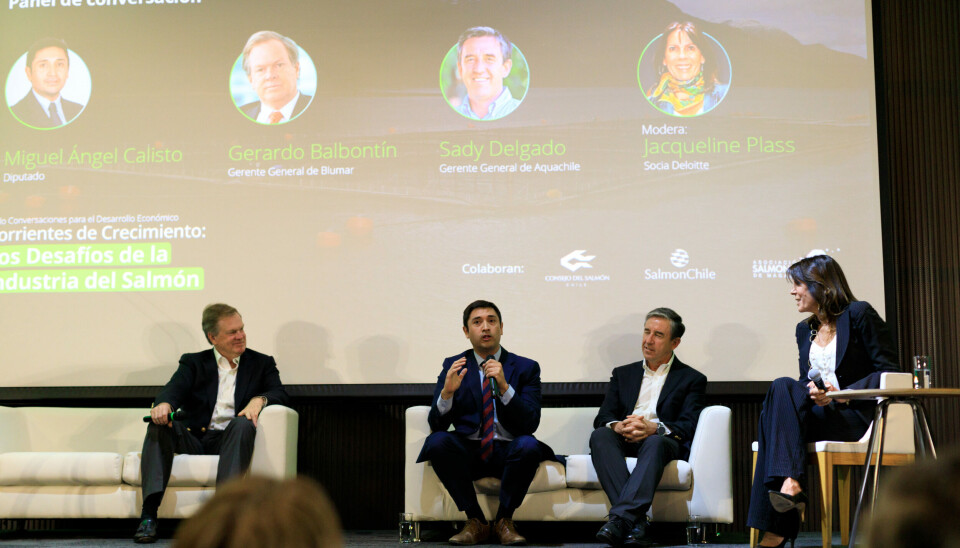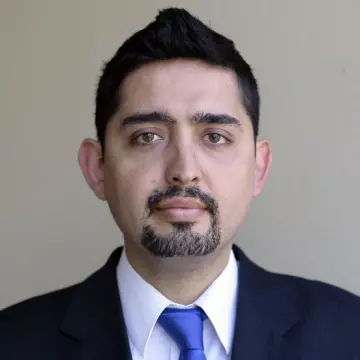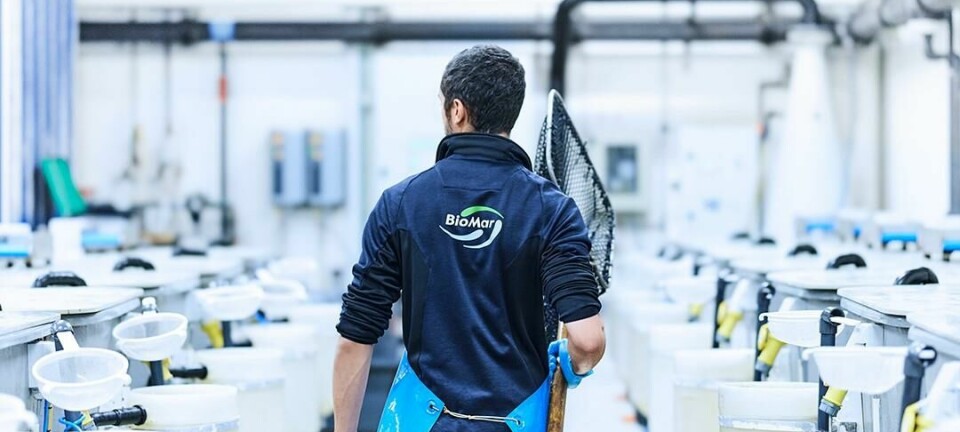
Chilean salmon farmers support public disclosure of NGO funding
The top executives of AquaChile and Blumar gave their backing to a project that aims to make the funding of non-profit organisations transparent.
In Chile's Senate, the second stage of a bill that seeks to make the financing of non-governmental organisations transparent has begun. According to the author of the initiative, Deputy (MP) Miguel Ángel Calisto, it is necessary to know the true intentions of NGOs, for example, to affect Chile and destroy industries like salmon farming.
Calisto is a member of the Chilean Congress's lower house, the Chamber of Deputies, which has already approved the bill. The Deputy, who represents the salmon farming region of Aysén, wondered why an NGO brings together indigenous communities with the intention of requesting, through them, Marine Coastal Spaces for Indigenous Peoples, paralysing a large part of the salmon farming activity. This and other reasonable doubts will be answered with the probable approval of the bill.
In this way, in the bill, it will be known through data from the Internal Revenue Service how many NGOs operate in Chile, who finances them, and their objectives where, according to Calisto, many disguise their true negative purposes with positive speeches.
Lafkenche Law
“We must support Deputy Calisto's project,” AquaChile's general manager, Sady Delgado, told Fish Farming Expert's Chilean sister site, Salmonexpert. He added that there is a huge number of civil society organisations in Chile where many contribute to development and others criticise the salmon industry, so transparency is needed.
Among other things, NGOs opposed to salmon farming have sought to leverage Chile's Lafkenche Law to evict salmon farms or prevent expansion. The Lafkenche Law grants limited resource access rights to all coastal indigenous communities, in designated portions of Chile’s coastal areas, for traditional uses including harvesting practices. The communities can apply to administer an area of sea under the Coastal Maritime Spaces of Native Peoples (ECMPO) initiative.
'Trapped by ECMPO'
Blumar's general manager, Gerardo Balbontín, commented that the Lafkenche Law had a good intent to recognise indigenous peoples, and in fact, specific processing times for ECMPOs were proposed in it. However, NGOs found a way to trap the salmon farming sector by overwhelming the system with ECMPO requests.
Balbontín recalled that the director of Greenpeace Chile, Matías Asun, stated on March 18 in the Senate Environment Committee that he had so many economic resources that he could easily stop projects of industries like salmon for up to 2,000 days.
For Delgado, the Lafkenche Law requires urgent change. In his opinion, Chile has the most sustainable salmon farming model in the world, showing improvements in its practices over the last 20 years, so its proper development should be allowed.















































































